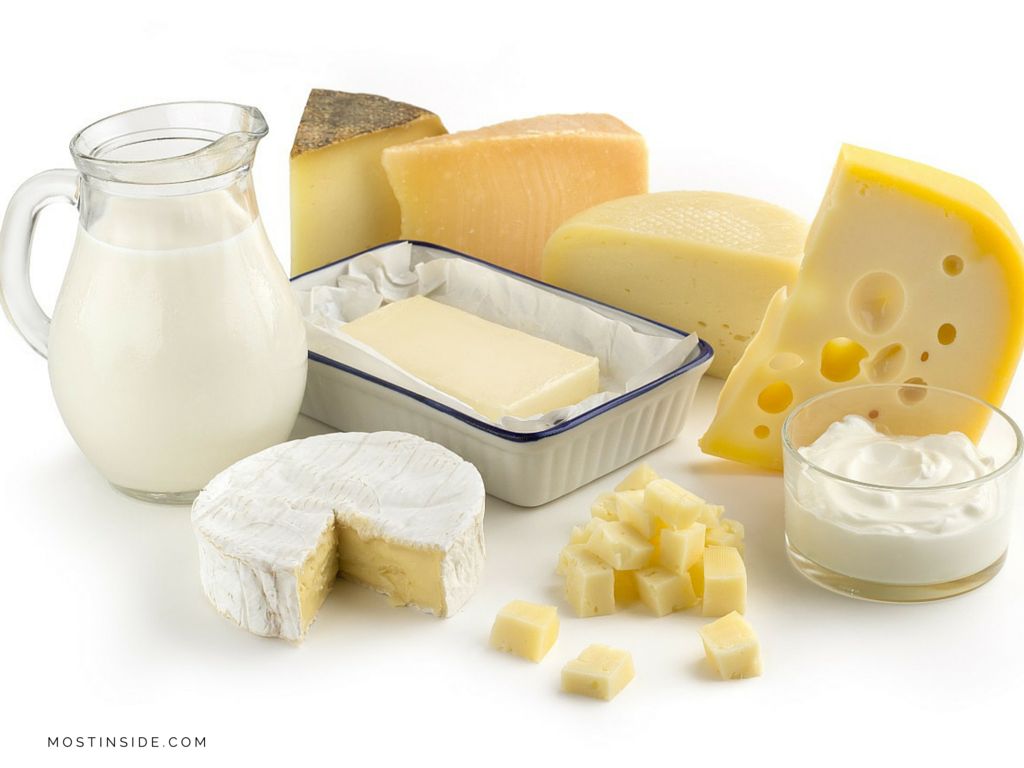Are Dairy Products Great for Health or Not?
This post was last updated on January 25th, 2024
Dairy products are consumed in almost every household worldwide and they are considered to be an indispensable part of our diet. Milk, yoghurt, cheese, butter, etc are said to be an abundant source of protein, calcium, minerals and other nutrients and thereby, when it comes to having a healthy diet, we definitely include a portion of dairy products.
But consumption of dairy products have become a matter of debate lately. This is because of the difference of perceptions held by many health organisations and scientific researches. While health organisations are of the view that having dairy products are crucial for bone health, there are many other scientific studies who are firm on their findings that dairy products can be harmful and must be rather avoided.
It is however, true that not all dairy products are of the same quality and it entirely depends upon the raising of the cows and handling of the dairy products. Moreover, commercialisation has also caused deterioration in the quality and there has been several health effects on humans that has recently been witnessed globally.

Source: Health impact news
Are dairy products man’s inevitable need?
Humans are the only species that consume milk even in adulthood and that too, sourced from another animal. It is obvious that a cow’s milk is for the proper growth and development of a calf and humans in adulthood don’t have to meet the need of self-growth and development. So, if it is argued from the evolutionary point of view, then we probably don’t need to consume milk or milk products for maintaining great health.
Until the agricultural revolution, humans did not consume dairy products but there have been many civilisations that have been having this products for thousands of years, owing to which their bodies have become genetically modified to adjust them in their diet.
Did you know that around 75 percent of world’s population is intolerant to lactose?
The main component that gives our body energy from milk is lactose, which is made from two simple sugars called galactose and glucose. When babies have mother’s milk, their digestive system produces an enzyme called lactase to break down the lactose and as a matter of fact, most people don’t have the ability to produce this enzyme in adulthood, which leads to lactose intolerance. Researches have found that around 75 percent of the global population is intolerant to lactose and these are some of the symptoms that can prove intolerance- nausea, vomiting, diarrhoea and stomach aches. Though most people are unable to digest the some of the dairy products, but they may not have difficulty in consuming yoghurt or butter.
Are dairy products too nutritious?
While there have been many contradicting notions, still major studies support the fact that dairy products are too nutritious not only for the calf but also for humans due to similarities in terms of muscles, cells and organs. A single cup of milk comprise of:
- Vitamin D – 26 percent of RDA
- Calcium – 28 percent of RDA
- Potassium – 10 percent of RDA
- Phosphorus – 22 percent of RDA
- Riboflavin – 26 percent of RDA
- Vitamin B12 – 18 percent of RDA
(Recommended dietary allowance)
Besides it is also rich in protein and even minerals such as selenium, zinc, magnesium, vitamin A, vitamin B1 and vitamin B6. Since there are different kinds of dairy products, the nutrition composition of each product varies from that of milk. The nutrition composition also depends upon the raising of cows and what quality of fodder they are fed upon. The fat in dairy products is quite complex as it is an amalgamation of hundreds of fatty acids that are bioactive and have significant impact on our health.
It has been studied that milk of cows that are raised on pasture and were fed grass have more of omega 3 fatty acids. Dairy products from grass fed cows are also high in terms of fat soluble vitamins, specifically vitamin K2, that is very crucial for calcium assimilation in the body and also helps in improving bone and heart health.
Does dairy products influence your bone health?
The bone health is optimum if it gets enough dosage of calcium and to meet this requirement, dairy products can be relied upon as they offer ample source of calcium. Many health organizations suggest having 2 to 3 servings of dairy products each day to get enough calcium for bones. But many health experts deny this fact citing that there are some countries that have low consumption rates of dairy but still the number of people suffering from osteoporosis is low, whereas in country like US, where the consumption of dairy products is high, the osteoporosis patients too are increasingly high.
Despite these retrogressive opinions, large number of countries depend upon dairy products as a source of high nutrition and it has been found that they help in improving bone density in young people and reduces the risk of fractures in the elderly people.
Is consumption of dairy products linked to diseases such as obesity and type 2 diabetes?
On contrary to widely accepted perceptions, despite being on the higher side in terms on calories, full fat dairy can actually be beneficial for reducing risk of obesity. When experts reviewed 16 studies, 11 of them showed results that full fat dairy consumption can reduce risk of obesity while there has been no such benefit from having low fat dairy. Another observational study from Harvard found that people who consumed full fat dairy had less inflammation, less belly fat, lower triglycerides and improved insulin activity along with 62 percent reduced risk of type 2 diabetes.
Can dairy products protect your heart from critical ailments?
It has always been a popular fact that dairy products are high in saturated fat, which is associated with increasing the risk of heart diseases. However, most scientific studies have adjudged this fact as myth. But it is important to know that the risk of heart diseases arising from consumption of dairy products varies between countries and largely depends upon how the cows are raised and fed. While there are some studies that have found full fat dairy to cause a shoot in the risk of heart ailments, but there are many more studies that showed the link of dairy product intake with reduced risk of stroke and cardiovascular disorders.
In countries such as Australia where cows are grass fed, people who consumed full fat dairy were found to be at a remarkable 69 percent reduced risk of suffering from heart ailments. This is mainly due to the high content of vitamin K2 in grass fed cow’s dairy products.
Recommended: 10 Things Happen When You Avoid Eating Bread
Are dairy products associated with changes in hormonal activities?
Dairy products help in triggering the production of insulin and IGF-1 (Insulin-Like Growth Factor 1) hormones owing to which in some cases, people consuming dairy products suffer from acne. These hormones are even believed to increase the risk of certain cancers. There are various medical studies that reveal the link of dairy product intake with reduced risk of colorectal cancer but it may possibly raise the risk of prostate cancer. Remember that these insulin and IGF-1 hormones are not bad if you are aiming to gain muscle and strength.
What kind of dairy products are ideal for health?
Even though many people believe in consuming low fat dairy products thinking of them to be healthier and less fatty, but the best ones are the full fat dairy products as they are loaded with wholesome nutrients, beneficial fatty acids and fat soluble vitamins. Fermented dairy products like yoghurt and kefir too are extremely advantageous for health as they contain probiotic bacteria that help in reducing inflammation, maintaining weight and aids digestive system.
Many people even believe in consuming raw dairy products, i.e., made from milk that hasn’t been pasteurised as this process can cause a change in the product’s natural taste and can even alter the nutrition composition of dairy products. Low fat dairy, however, has been recently known to have added sugars to make up for the lost taste of milk. Just go for grass-fed or pasture raised or full fat dairy of high quality if you really want your body to grab the wholesome nutrition stored in dairy products.
Recommended For You
Top 5 Benefits of Chia Seeds and Their Use for Skin Health
Snehashree Bhat
A young writer who loves to pen words from creative perspective. Passionate internet surfer, a versatile homemaker and a person who finds pleasure in adopting healthier and positive changes in her persona. An enthusiastic feminist who wishes to make serious changes in the stereotypical thought process of the society via the voice of her words.




